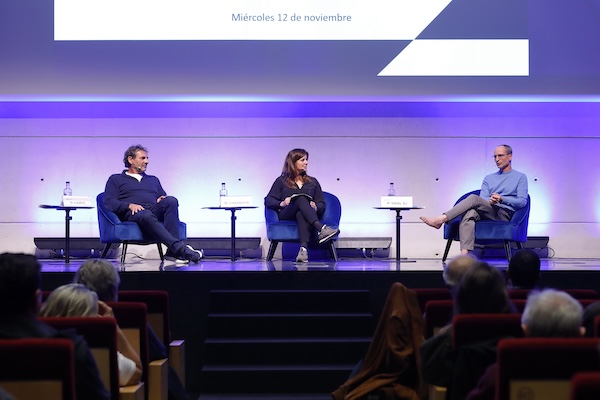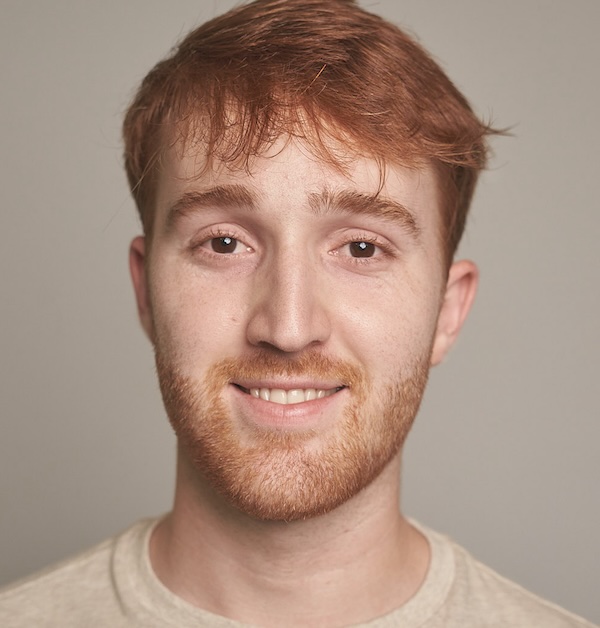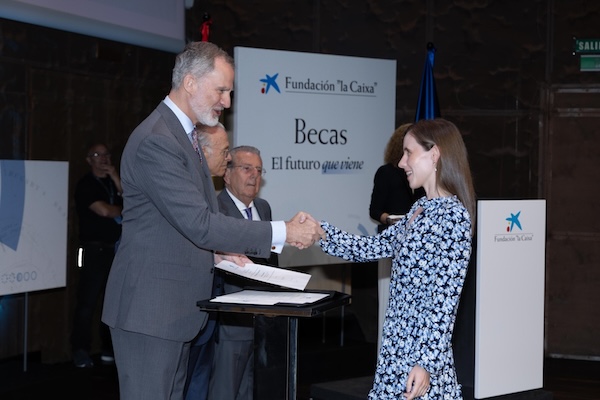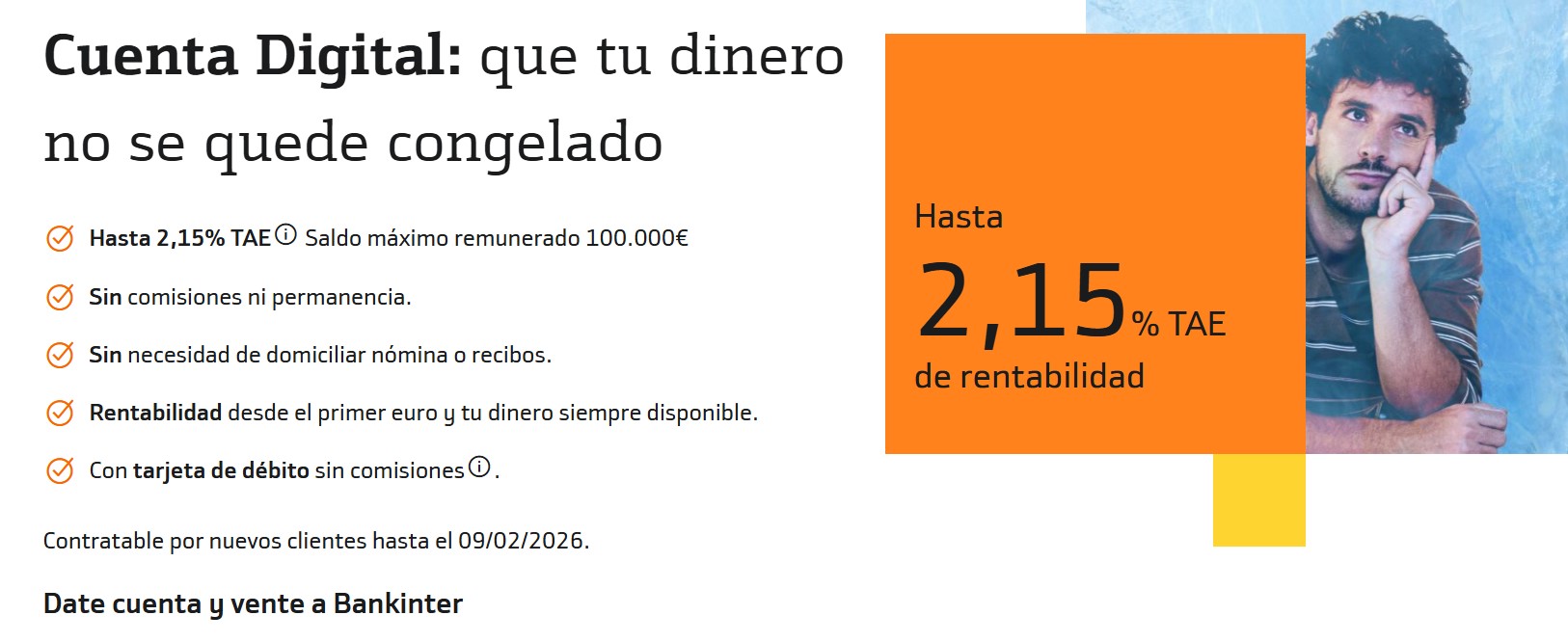Conveying the importance of nurturing your inner life and happiness in order to become a successful leader is a priority for the Esade Alumni Inner Life & Leadership Club, hence the master class by Arthur C. Brooks held by the club.
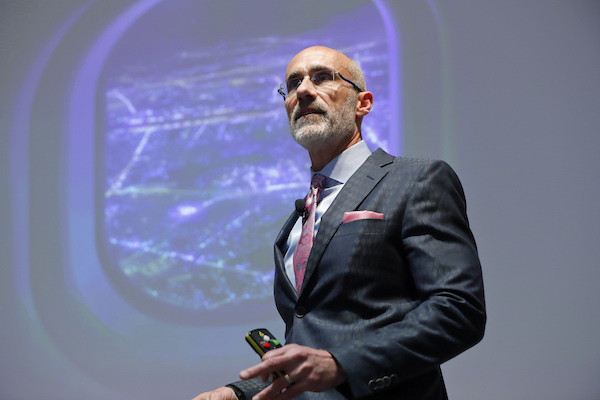
WATCH VIDEO OF THE SESSION
Arthur C. Brooks gives classes about leadership, happiness and social enterprise and is a columnist for The Atlantic, where he writes the popular weekly column ‘How to Build a Life’. Brooks has also penned 13 books, including the 2022 New York Times #1 bestseller From Strength to Strength: Finding Success, Happiness, and Meaningful Purpose in the Latter Half of Life, and is devoted to sharing his discoveries about happiness around the globe. But his life wasn’t always like this. “I used to run a company with hundreds of employees, but I felt insecure about my life. As the years went by, I wondered what my purpose was and how I could be happy. As a result, happiness became my field of study and also the subject I teach”, he said during his talk at Esade Forum.
Happiness is, according to this expert, one of the most important skills a person can learn, so he wanted to share strategies that can be applied every day to become happier and inspire other people.
The truth is, according to research, that happiness tends to decline throughout young adulthood and midlife and bottom out at around the age of 50. After that, it starts increasing again until something weird happens: people fall into two groups as they get older: those who become much happier, and those who become much unhappier. The question is: what can we do about it?
What is happiness?
According to Brooks, happiness is the combination of 3 things: enjoyment, satisfaction and purpose. “People think that happiness is a feeling and therefore beyond our control. But it’s not a feeling. Quite the opposite, happy feelings are proof of our happiness”, explained the scientist.
In addition, we must not confuse enjoyment with pleasure because all addictions seek pleasure, and the pursuit of pleasure doesn’t bring satisfaction. Satisfaction is the result of making an effort. And in this respect, suffering is essential because it teaches us something. “If you follow your feelings, you won’t get satisfaction, you’ll always need more to get the same satisfaction. To be satisfied you must ignore your feelings and create a strategy of wanting less and less. The secret is not to get what you want but to want what you already have”, was Brooks’ advice to the audience.
As regards a person’s purpose, it’s important to remember that things happen for a reason, so it’s essential to bear in mind that your life matters and give it direction.
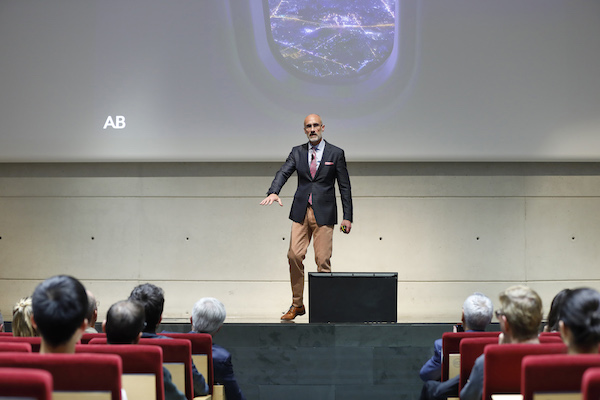
A combination of factors
It must almost be remembered that happiness is 50% genetic, inherited from our parents, 25% circumstantial, and the other 25% is the result of our lifestyle. Good habits will generate better circumstances, which is why Brooks recommends investing in 4 areas every day: faith, family, friends and work. “Spirituality, transcendence and mysticism provide perspective and peace; the family provides oxytocin; you love your friends; and work gives us satisfaction when we know we’re creating value in our own lives and in others’ lives”, he explained.
Conclusions
Before ending his talk, the professor summarized the main concepts and shared 8 ideas:
- Happiness does not depend on your feelings but on your effort
- You must make an effort to enjoy, find satisfaction and purpose
- Manage your desires, not just your possessions
- Learn from your suffering
- Walk the path of transcendence
- Have real friends
- Earn success and serve others
- If we teach others everything we learn, we will spread knowledge, and everyone will benefit
Esteve Mogas (Lic&MBA 88), president of the Esade Alumni Inner Life & Leadership Club, explained during his closing remarks that the club continues to offer activities that enable us to grow as people and leaders because responsible, conscious leaders perform better: "What we have heard about happiness today reminds us that purpose is reflected in the fruits of our labor,” he said.
Visit our Content Hub to watch a video of the session



